Britain-based Middle East specialist Amal Saad on Wednesday played down the prospect of wider escalation between Hezbollah and Israel following the latter’s assassination of a senior Hezbollah commander in south Lebanon a day earlier.
"I don't think that the death of this highest-ranking commander is going to change any of Hezbollah's calculations," Saad said, explaining that civilian casualties were "red lines" for the group rather than the targeting of commanders or fighters.
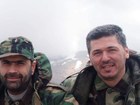 Full Story
Full Story
For more than a decade, a steady flow of Syrians have crossed the border from their war-torn country into Lebanon. But anti-refugee sentiment is rising there, and in the past two months, hundreds of Syrian refugees have gone the other way.
They're taking a smugglers' route home across remote mountainous terrain, on motorcycle or on foot, then traveling by car on a risky drive through government-held territory into opposition-held northwestern Syria, avoiding checkpoints or bribing their way through.
 Full Story
Full Story
The resignation of a senior member of Israel's war Cabinet was a dramatic show of distrust in Prime Minister Benjamin Netanyahu and his strategy for the eight-month-old war with Hamas.
But the departure of Benny Gantz does not immediately appear to threaten Netanyahu, who still controls a majority coalition in parliament.
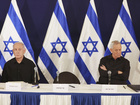 Full Story
Full Story
Israeli leaders have increased their warnings to Hezbollah as cross-border violence escalates by the day, but experts believe that the risk of all-out war remains limited.
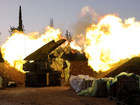 Full Story
Full Story
The Progressive Socialist Party kicked off this week a series of meetings with the Lebanese political parties in a bid to break a knotty presidential impasse, few days after French special envoy to Lebanon, Jean-Yves Le Drian, left Beirut empty-handed.
In Maarab, a PSP delegation met with Lebanese Forces leader Samir Geagea and MPs Ghassan Hasbani and Nazih Matta, while Former minister Ghazi Aridi held meetings with Speaker Nabih Berri and Hussein Khalil, the political aide of Hezbollah chief Sayyed Hassan Nasrallah.
 Full Story
Full Story
Hezbollah fired Thursday for the first time air defense missiles at Israeli warplanes that the group said were "breaking the sound barrier and terrorizing children."
Hezbollah said in a statement that its air defense missiles forced the warplanes to "retreat beyond the border."
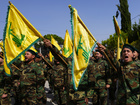 Full Story
Full Story
The image shows tents in a camp, highlighted to spell out one single phrase: "All Eyes on Rafah." It has been shared more than 50 million times.
A single image, not even an authentic photograph, is the focus of a singular campaign on Instagram that has caught the attention of the algorithm and captured the imaginations of users across national borders — a show of support for the Palestinian movement as the war between Israel and Hamas enters its eighth month.
 Full Story
Full Story
An Israeli army raid in April set off a near three-day gunbattle with Palestinian militants. By the time it was over, homes had been blasted to rubble and many residents had fled.
The raid wasn't in Gaza, where Israel is at war with Hamas, but more than 100 kilometers away in the Nur Shams refugee camp in the West Bank — a territory that has been under Israeli military rule for over a half-century.
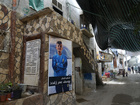 Full Story
Full Story
Throughout its grinding seven-month war with Hamas, Israel has pledged to investigate a series of deadly events in which its military forces are suspected of wrongdoing. The commitment comes in the face of mounting claims — from human rights groups and the International Criminal Court 's chief prosecutor — that the country's leaders are committing war crimes in Hamas-ruled Gaza.
In one of the highest-profile cases, an attack on a World Central Kitchen convoy that killed six foreign aid workers and their Palestinian driver, the Israeli army promptly published its findings, acknowledged misconduct by its forces and dismissed two soldiers. But other investigations remain open, and admissions of guilt are rare.
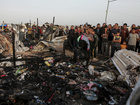 Full Story
Full Story
Defense experts who have reviewed debris images from an Israeli airstrike that ignited a deadly fire in a camp for displaced Palestinians questioned why Israel did not use smaller, more precise weapons when so many civilians were nearby. They said the bombs used were likely U.S.-made.
The strikes, targeting Hamas operatives, killed as many as 45 people sheltering in a temporary displacement camp near the southern Gaza city of Rafah on Sunday and have drawn international condemnation.
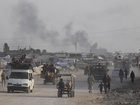 Full Story
Full Story



